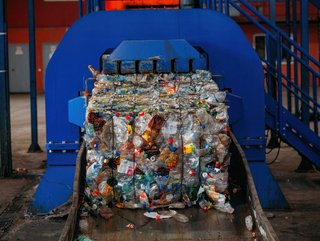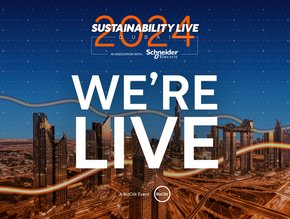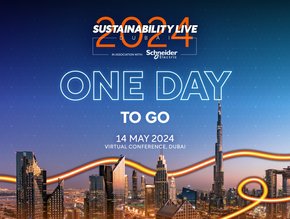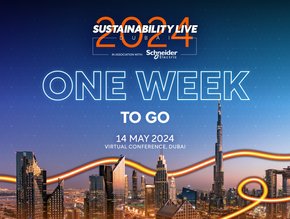Dassault Systèmes’ key considerations for a circular economy

Waste is a key focal point for organisations producing consumables and other goods—namely manufacturing companies, builders of cities and infrastructure, and life science and healthcare professions to name a few. In fact, the Circle Economy’s 2023 Circularity Gap report shows that around 90% of materials are wasted, despite best efforts to recycle and reuse goods, which is unacceptable in a world where resources are becoming more scarce.
All industrial sectors and high-producers are looking to implement responsible practices, and the circular economy offers up a new way of delivering the goods for their sectors without contributing to the mountains of waste produced from industries, and reduces strain on already tight material supplies.
While the circular economy often characterises natural sources or biodegradability, there are further elements that can reduce the impact of goods and services. Closing the loop can also provide commercial benefits, by honing in on some key factors that make a product or process circular: the nature of products and their designs, material choices, and the enterprise functions that generate more sustainable outcomes within value chains.
Considering these three things, companies can not only deliver on their goal of becoming circular, but also make their efforts scalable in line with business growth, and profit from sustainability—a win-win scenario for both people and planet.
Design and materials: key considerations for circular products
The French multinational software corporation Dassault Systèmes looks to reshape businesses’ approaches to creating sustainable products. Focusing on the materials used in products as well as service infrastructure, experts from the company express the importance of material selection, yet emphasise the significance of the design phase in creating a circular product or component for long-term impact.
In the very early stages of conceptualisation is when a company can consider all of the materials, their compositions, and the emissions generated by creating specific components. Further insights from Dassault Systèmes are shared to educate businesses on how to visualise a product, incorporate recycled, low-to-no-emission materials into manufacturing to cull any adverse impacts before building a newly designed product.
It is within the design phase where there is potential to swap out certain materials for more ecological ones and address sourcing of things that could include harmful chemicals. To fully understand the impact of a product, companies must also analyse:
- How raw materials are extracted and processed prior to purchase
- The design characteristics that govern the efficiency of the manufacturing process
- The distribution and logistics requirements of a product
- Emissions from use by professionals or consumers, and maintenance requirements
- How the product will complete the cycle at the end of its life
More on this HERE as Dassault Systèmes talks through the different circular cycles to consider: the technical cycle (the circulation of reusable material, repairing goods, remanufacturing, and recycling) and the biological cycle (compostable materials and disposable by anaerobic digestion).
Depending on the material composition of goods, they may follow one of the above cycles to be disposed of responsibly—technical cycles are labour intensive and may require specialist support for recycling and redistribution.
Enterprise actions to implement a circular economy
To build a circular economy, businesses must foster circular supply chains. Collectively organisations have the power to influence a number of changes by designing and creating circular products, but this is encumbered by the resources available and the impacts of the suppliers they use. As a result, there are some crucial areas for development as businesses influence their supply chains and make sure that their providers meet circular standards.
Incorporated into Dassault Systèmes’ 3DEXPERIENCE platform, manufacturers and other organisations dealing with components and materials can gain end-to-end visibility of their supply chains—including products themselves—and identify leakages along the value chain. Such visibility through the virtual twin allows greater understanding of suppliers’ positions in the circular economy and allows them to communicate effectively to measure and act on sustainability metrics.
Some of the areas to be addressed are mentioned above, but the key is to visualise how each impacts the overall circularity of a product. Data leveraged in the 3DEXPERIENCE platform can also provide insight into the downstream impacts of a particular item, component, or hardware.
3DEXPERIENCE aims to be the in-all-one platform for the virtual twin to turn data into actionable insights internally and externally, tapping into areas of the supply chain that can support or are capable of supporting circularity.
This story is sponsored content written by Sustainability Magazine on behalf of Dassault Systèmes.
*******************
Make sure you check out the latest edition of Sustainability Magazine and also sign up to our global conference series - Sustainability LIVE 2024.
*******************
Sustainability is a BizClik brand.






